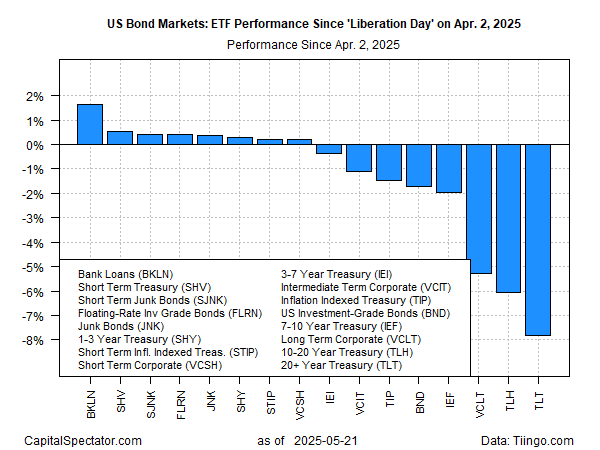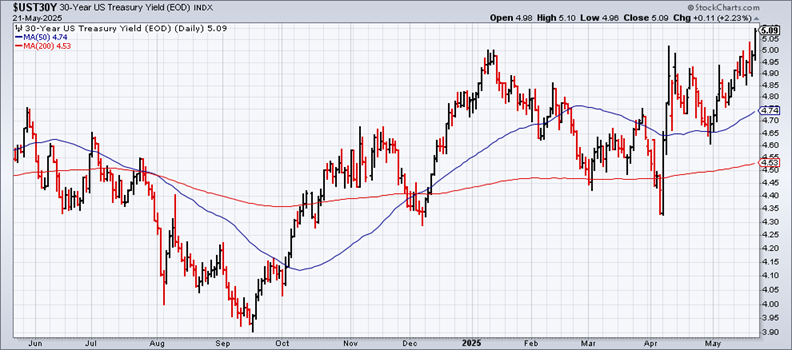ION expands ETF trading capabilities with Tradeweb integration
The government bond market had been more or less flatlining since since President Trump on Apr. 2 announced “Liberation Day” and rolled out US tariffs, which sparked concern about inflation. But in recent days a new headwind is weighing on fixed income securities: a US government budget bill (that was approved by the House this morning), which is expected to significantly raise an already hefty federal deficit in the years ahead.
If the Senate approves the bill, and President Trump, as expected, signs the legislation into law, the spending package is projected to increase the US government’s debt by trillions and raise the deficit. The timing is challenging, given that inflation expectations are elevated following the increase in US tariffs. It all adds up to risky outlook for the bond market.
Long-term Treasuries are the biggest losers post-Liberation Day, based on a set of ETFs through yesterday’s close (May 21). The 20-plus-year portfolio (TLT) is down nearly 8% since Apr. 2. The broad US investment-grade fixed-income benchmark (BND) is nursing a relatively mild decline so far, shedding 1.8%.
By contrast, bank loans (BKLN) are holding on to a most 1.7% gain in the post-Liberation Day period. Short-term Treasuries (SHY) and a cash proxy (SHV) are posting fractional increases.
The question is how bonds react in the weeks ahead to a government spending plan that’s expected to significantly increase the federal deficit. Key Treasury yields jumped yesterday, reportedly in reaction to rising confidence that Republicans will be successful in passing President Donald Trump’s “big, beautiful” tax bill.
The 30-year Treasury yield, the most-sensitive maturity for inflation expectations, rose to 5.09% yesterday, the highest since late-2023.
“It goes without saying that if Trump is, in fact, looking to the Treasury market as a barometer of investors’ approval of the action in Washington [with regards to the current debate over the federal spending bill], then the recent sell-off that brought 30-year yields from as low as 4.65% earlier this month to 5.095% is without question a troubling development,” said Ian Lyngen, an interest rate strategist at BMO Capital Markets.
JPMorgan Chase (NYSE:JPM) Chief Executive Jamie Dimon today said “I think they should do the tax bill. I do think it’ll stabilize things a little bit but it’ll probably add to the deficit.” He added: “I think the deficit will be large and probably growing.”
The bond market, it seems, is increasingly inclined to agree.
